 CAKEFAERIE NEWS: LENT 2020
CAKEFAERIE NEWS: LENT 2020

 CAKEFAERIE NEWS: LENT 2020
CAKEFAERIE NEWS: LENT 2020

New Buttons for Safer Space Peoples we support, to be added shortly to the 50+ already on our front page, are as follows.
We had have requests to add the following buttons to the large array of buttons at the end of each of our main websites:
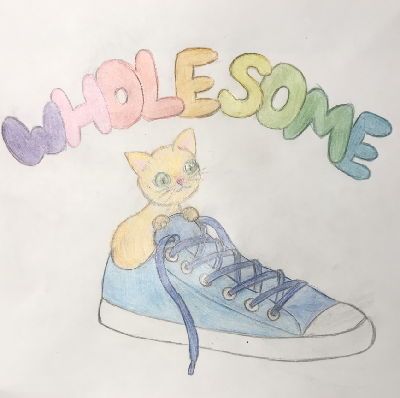
2) Generation Z and Friends.
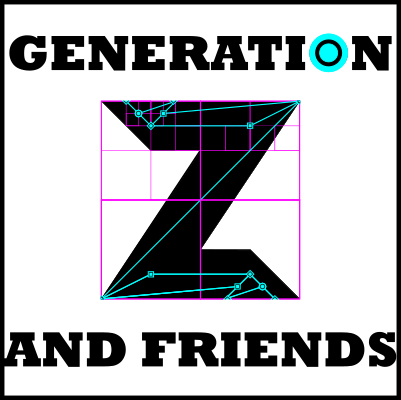
Previous years' CakeFaeries notice you are different in some ways, and look into how you are and what you wish for!
Early survey outcomes
here,
here,
here,
here,
3) Progress Pride Flag: with Trans and BME bend on one side.
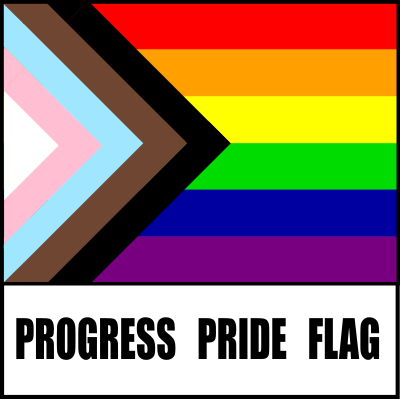
4) The Arbitrarily Extended Progress Pride Flag, which also has an infinity" along its middle: a flag of our own design. This statedly indicates a pride flag to which any legal and consensual group may add bends, fringes, symbols etc without any 'resistance' or 'need for permission'.
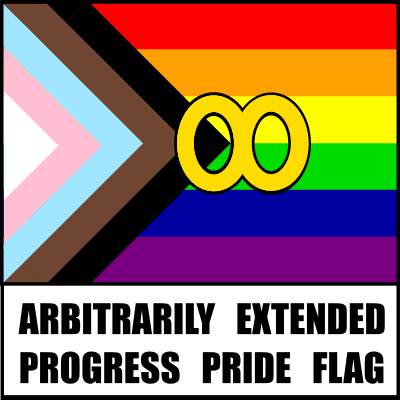
5) An infinity+ is also to feature as an extension to the cross of the Feminism symbol to form the Eighth Wave Feminism symbol:
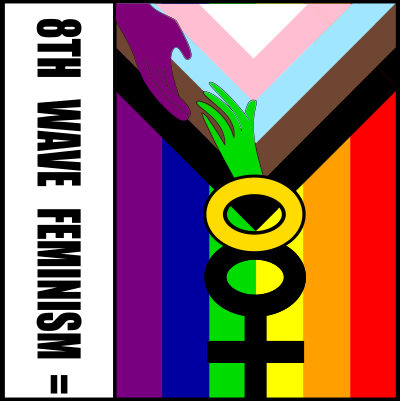
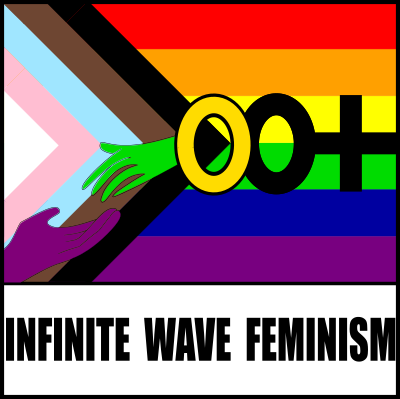
SOME CONTEXT by anonymous Survivors
Content warnings and trigger warnings: Survivors. People being denied representation for their characteristics. That the 90s and 00s had TERFs all over the place.
Fourth-wave Feminism started in Spain in the 1990s. It did not become prevalent in Cambridge until 2014. This is rather significant for many of us, since Fourth-wave Feminism was the first to acknowledge the large-scale presence of Survivors in universities, as well as the first to support Nonbinary and GenderFluid people and to point to sizeable intersectionality effects. In Cambridge, this provided a safe enough environment for an overtly Poly society to appear in university spaces, and for it to be safe enough to dare ask for an official Ace rep. All this occurred in 2014 itself.
Fifth or Sixth wave Feminism has taken off in South America for some years now. 2016 was quite a determining year. Many of these Feminists rejected Hillary as well as Donald as viable world figureheads. Some of us here had been silently considering such two-way rejection as well, from the point of view that two-party politics is non other than the practice of divide-and-conquer on one's own people. For both parties are funded by the same plutocratic class, who doesn't allow them to change the substance of their key policies (they just differ at the level of what lies they tell in the process).
There is a variety of opinion as regards how Fifth and Sixth wave Feminism differ. These movements reject such as western-, academic-, white- and 'upper end of some class system'-centric leadership in Feminism (and in other Liberation struggles). They involve more extensive notions of intersectionality, though some groups have increased in awareness and action in that regard while still considering themselves to be Fourth-wave. One more specific distinction is that most Fourth-wave Feminism does not reject many or all mainstream leftwing parties. Some interplay between the previous two sentences concerns intersections involving at least one characteristic that left-wing parties either do not presently recognize or do not emphasize. One opinion (which we don't oblige anyone else to have) is that Fourth-wave Feminism structured so as to increase intersectionality awareness and practise becomes a particular notion of fifth wave Feminism. If moreover this includes rejecting western-, academic- and two-party system centricities, it becomes a particular notion of Sixth-wave Feminism. This matches, or is largely compatible with, the form of Feminism that has been widespread in South America since 2016.
This term, Cambridge was visited by South American Fifth and Sixth Wave Feminists, who demonstrated in front of the Town Hall in January.
We would like to clarify that Cambridge has had nonzero representation of Fourth-wave Feminists since the 1990s. As far as we know, these did not dare consort with other local Feminist movements at the time because e.g. those were full of TERFs: 'Trans excluding (or erasing) radical feminists'. In contrast, our Safer Spaces here have been accepting of, and sheltering toward, Trans* people since the 1990s. It was not until 2008 that any of these Fourth-wave Feminists dared to liaise with other local Feminists, and this was along the lines of not revealing that there were further Fourth-wave Feminists hidden around the place. 2008 was at the centre of Trans* legal protection taking effect in the university staff and reps systems. The Third-wave Feminists who became prevalent around that time were the first generation to accept Trans people, Trans wellbeing and Trans rights.
In fact, Cambridge's hidden Fourth-wave Feminists here did not stay Fourth-wave. For instance, already in the 1990s, these learned how to meaningfully include Closeted people. In our Safer Spaces here, rights do not derive from Coming Out alone. Additionally, everyone is treated as the statistical average of all the things they could be Closeted about. This started in the late 90s. By 2008, the main rule our Safer Spaces is run by was upgraded to
"a person is upset if they say they are, and without having to say why. Apologies, and non-repeats of what caused it are expected."
This "without having to say why" is a foundation for Closet Rights. A subsequent such is the creation of Ally and Awareness badges. For no Closet-Trans* person will publicly wear a badge saying they are Closet-Trans*. So the Closet-Trans* cause would have no badges visible unless Allies wear "Ally" rather than "I am a" badges, and sympathizers who do not yet have all the awareness, confidence... to wear "Ally" badges wear Awareness badges.
These early hidden Fourth-wave people also listened to what Survivors feel, wish, and need since the 1990s. What they heard here was found to have essentially no common ground with what Out Survivors were saying elsewhere. This is in good part reconciled by what is now common knowledge: that 85% of Survivors do not go to the police. It is still not widely known enough that almost exactly the same 85% don't go to doctors, tutors, reps, or to anybody else bearing any resemblance of officiality. These might tell a friend or a relative, or they might tell nobody at all. So the 85% are not just 'those who don't go to the police', but rather Avoidant Surviors who don't go to anybody 'official'. Some of them tried to go to some official, but were met with disbeief, dismissiveness or threats, by which the Survivor decided to never trust any officials again. Some were more distressed by the officials doing this than by their own rapists. Some of these consequently call themselves "Survivors of the System" (one of our Safer Space populaces, that was first publically declared as such on our websites in 2019). Other Survivors gave officials a miss from the outset. One consequence of listening to Survivors since the 90s, devising and handing down the principles of the matter if never the personal histories or personal details, is that we have two decades of experience in knowing what Survivors feel, want and need, and how to provide these things. Other groups dealing with Survivors at university, in contrast, often have six or less years of experience in this regard. Moreover, both Avoidant Survivors and Non-normative Survivors have been here in droves, and have told us in substantial detail why they do not consider that any 'official resources for Survivors' are relevant to them, or, in many cases, not even vaguely near being safe for them to use.
The future profession or volunteer service that deals with the millions of Surviors in society will contain security personnel as well as listeners. It will leave confidentiality clauses as free parameters that each client informedly specifies the value of. It will never presume that any Survivor is telling the whole of their story, just the part of it that at that point they feel safe enough to disclose.
There is a major demand in this country for treatment for PTSD (post traumatic stress disorder) unto people who will not under any circumstances say why they need to be treated for PTSD. Those seeking this treatment could as well be Closeted about something or subjected to workplace bullying. This country has at least between one and ten million people in each of these three groupings (Survivor, Closeted, Bullied). They require treatment by people who do not demand to make records of their clients' histories, or, for that matter, identities. By people who, additionally, do not pry into which of these three things is the case (or some somewhat rarer fourth, fifth... cases) until if and when the client informedly and freely is willing to specify which of these matters applies.
Similar applies to a list of other common mental health injuries to be found among many Survivors, badly bullied people etc.
Our safer spaces said No to the idea of an elected class with insufficient checks-and-balances as regards them not following self-interest or party lines rather than the constituents' wishes. By this, we and the 2016-era South American Feminists have some common ground.
Feedback from Survivors and Closeted people and Survivors of Bullying (among others) determines that one very common requirement is for there to be spaces that are abuse-free zones. We were not the only ones doing this: in 2011, the university's Trans* list was publicly declared to be 'for Trans people and anybody else in need of an abuse-free zone'.
One step we took in this direction is that our activities are specifically about cooperation rather than about competition.
A more obviously substantial, and innovative part of our approach to this feedback has been to declare ourselves a non-consensus forming people. Each of us is free to form our own view of our own characteristics. What each of us does not do is try to impose this view on anyone else's characteristics. One place this came from, quite effectively, is Ace (i.e. Asexual) spaces. Some of our Aces say 'i consider my Aceness to be part of LGBT'. Others say 'i do not consider my Aceness to be part of LGBT'. These two cases are not then in conflict with each other. This permits us to differ greatly among ourselves. This is the only way that very small minorities can be included somewhere. If there is just one member of that minority in this university town, they can't form a local group. Even if there are twenty, we know that only 1 in 8 to 1 in 30 people can make a meeting at a given time, by taking the ratio of email list size to meeting atendance size. There being 20000 students here, this corresponds to 0.1% minorities. There are moreover many such minorities, so the total number of highly different people is rather large.
Relying on socializing like with like, without any space for socializing between different but tolerant of each other people, leaves many of the most vulnerable people alone in places like campuses or university cities. Leave space to do things otherwise; Cambridge is fortunate in allowing many kinds of semi-official society to operate (e.g. registered with the student union but not with the staff or vice versa, or registered with a college, or with the srcf). It is suggested here that in places where all societies have to be run the same way with the same rules, there is no space left for people with legal and yet not legally-protected characteristics to have space, activities and so on. The same applies to Closeted people, Survivors and the Bullied. To point to this being a big issue, we point to how at university age only around 1 in 3 Trans* people is Out. This is clear from how many Trans* people come out in third or fourth year rather than freshers' week. It is also clear with how many intersectionalities further complicate Coming Out. It is clear from new national surveys having rather more Trans* responses than there are Out Trans* people. One way in which Out and Closet Trans* people are the same is the 40% suicidality figure. And yet Out Trans people are supported by tutor training, reps etc, while Closet Trans* people have almost none of this. This is because almost none of tutor training has been thought out from the point of view that many (even most) of the Trans* people are not Out about being Trans*, including not being Out to tutors or to LGBT reps. So for instance, tutors are largely not trained to not do things that trigger Trans* people in the presence of an apparently not Trans* student. But around one in 70 of those is Closet Trans*. Also for instance rep and tutor training makes no mention of how the abuse experienced by Closet and Out Trans* people is very different. For instance, Closet Trans* women remain the only women in the city that nobody defends if someone calls this 'man' ugly to what is actually her face. Closet Trans* women remain among the women who by and large don't feel safe going to women's forum. Coming Out just isn't an option for Closet Trans* Survivors, Closeted people resident in countries which criminalize LGBT, and other cases. The 'Make no Assumptions' campaign is a step in the right direction. But for now we are quite sick of tutors telling what are actually Closet Trans women to 'man up', and in some recent past years, some Closet Trans* women were told to 'stop mansplaining' while trying to join local Feminist groups.
Our Seventh-wave Feminism is the result of combining
a) our separate parallel brand of fifth and sixth wave Feminism: Closet inclusiveness, rejection of consensus, cooperation not competition, spaces that are abouse-free zones for populaces who are different from each other but tolerant of each other. So that proportionately small populaces are not left out of options by expectations to socialize like with like. Or by unsurmountable arguments arising from not understanding each others' differences (and then demanding consensus).
b) South America's (and also our) rejection of 2-party political systems. And acceptance of many, if not quite all, of the South Americans' points about western-centric, academic-centric, white-centric, class-structured limitations on other current and past forms of Feminism's universal relevance.
There are some ways in which our Seventh wave suggests things that can be done to address excessive western dependence in Feminism and so on. Not having to form a consensus on the matter is one way of keeping the peace. In a place with no consensus, all sides speak, so the Westerners see and acknowledge the arguments about how the Global South's reality of living conditions has little if any common ground with western-centric or western-motivated agendas. One thing to bear in mind is that Feminism is free to have a different agenda in each continent, say, because the practical realities and the feedback is different in each place. Keeping an eye on the ensuing variety of agendas matters, and all parties involved should be welcome to do so. Each continent or country acknowledging the diversity of agendas in other countries is significant. Moreover, a wide set of agendas, each motivated by local realities and ensuing feedback, can be looked at from the point of view of finding common or universal principles and common or universal solutions. Or at least a menu of possible approaches to solve problems, from which each group chooses which kind of solution to attempt. But if a new kind of solution altogether is proposed, it would be good to add it to all the menus, even if it has some location-dependent connotations.
This finally points to one way in which there is not consensus between (some) South American Feminists and Academic Feminists (from whichever continent). This is along the lines that there is a place for at least one kind of academic Feminist to do something useful, particularly if this is an action of solidarity that exacts no toll in anything like prestige or centricity. Academic Feminists may well have ways to keep track of what common grounds and divergent grounds each country and continent's Feminists have. Of which principles can be candidly argued to unify many agenda items. Of which agenda items already have somewhat obscure possible solutions. Of how many types of solution are known, and which strategies for solution are getting a statistically-significantly higher success rate. Whether the strategies that work in a given place are correlated to the economy or to the prevalent ideology of the government, and so on.
The general idea is firstly that whoever can both technically and honestly analyse such matters should, all the while performing a service rather than acting or accepting enhancement from doing so. On the one hand, it then does not matter that most of the Feminists in the movements have not had the educational opportunity to understand statistics or risk analysis or details of other countries' laws. There are at least a few academic Feminists in whichever regions' movements, and if some of these act out of service rather than self interest, they will have both the means to make or understand others' analyses and the local trust that they are doing so in an honest and helpful way. Secondly, that the academic Feminists doing this understand the need to be able to explain the results to all Feminists rather than just to other academic Feminists. (This is a growing requirement in academia more generally -lay outreach- so by now it is soemthing that academic Feminists will be familar with. Feminism would however require lay explanation that all members understand with such outreach furthermore neither distorting facts or presenting over-simplified arguments as if they were full and true. With a liberation cause, people have the right to ask Why in more detail, and if this breaks an analogy being used in a lay presentation, say, then those presenting may well need to scrap, or supplement, that analogy. It might also be noted that this amounts to asking good questions, and that any Liberation Campaign member repeatedly asking good questions may be demonstrating academic promise. As such, various things could be offered to such, depending on their wishes and circumstances. They could receive the offer that an academic Feminist agrees to correspond with them. They could be offered a scholarship to an academic institution. This could moreover be a part-time education, and it could have some guarantee of accreditation even if a conventional sized degree is outside of the wishes and circumstances of the person. In brief, instead of rejecting academic (or elsewise intellectual: vocation versus profession distinction) Feminists, one could instead require part of their function to be explaining in terms that the general populace that the Liberation Campaign represents can understand, as well as insisting on service rather than self-enhancement. And finally partially reforming academic funding so that general members of the populace who keep on coming up with reasons not to be convinced are offered a range of educational opportunities rather than being ignored or told to shut up.
It is quite possibly the case that even the above description of Seventh-wave Feminism does not have enough internal stability to realize matters such as 'insist on service rather than self enhancement' as a way of compromising between talented people serving the community and unscrupulous people using talent as a means to impose themselves upon, rather than serving, the wider community. So we will start to explain Eighth-wave Feminism as well.
At least our version of Eighth-wave Feminism involves rejecting all forms of "Might is Right". It is well known that there are conscientious objectors to war. Feminists have quite widely argued that rhetoric can be a form of violence, for instance if used to attempt to deny the existence of, or right to exist of, Trans* people. Rejection of all forms of 'Might is Right', however, would also be saying no to politics as we know it. No two-party politics, not even any party politics, as parties have ways of making elected officials vote their way rather than in accord with prevalent feedback from constituents. No gatekeepers. No workplace bullying. No threatening people who think differently from us... Bear in mind that we here use rejection of all forms of 'Might is Right' internally within our own group. It means our members don't try to impose themselves on each other. The external world clearly does not operate in this kind of way. Eighth-wave Feminism is many years away from becoming a reality in the external world. Avoidant Survivors avoid, rather than confront, and so created concepts like those of Seventh and Eighth wave Feminism for internal use in our refuges. Avoiding and fighting are two different strategies. So many changes would have to be fought through before Avoidant Survivors felt safe in the external world that many of us believe it won't happen in our lifetimes. So instead we create a separate space where there is no resistance to change, and no impositions on other because everybody only talks about how they view their own characteristcs rather than others'. These two emphasized no's are among the fruit of what happens inside a space in which all forms of `Might is Right' is rejected.
Aside from outlining how we run ourselves here, this is a long-term recommendation for how a fair proportion of safehouses for Survivors (including of domestic violence) could be run.
There is a sense in which rejecting all forms of `Might is Right' leaves a space with no conscious oppressions. By this, we rotate the square to make the infinite wave Feminism sign. This comes with a very substantial caveat. In a space which rejects Might is Right, there is no resistance to feedback. So the things we don't know about yet have a way of appearing to us, and those bearing us tidings of them are treated with dignity. The infinity is the infinity of rejection of all forms of `Might is Right'. If we miss some forms, then these get pointed out by more feedback and are also removed. It certainly is not an infinity of improvements made, by which ther would not be more improvements. Nobody is omniscient, nor should claim to be omnisicient. There is total freedom to point out further oppressions that nobody had brought to our space's attention before, and no resistance to the internal changes needed to remove these oppressions. The same goes for misundestandings, and for unconscious expressions of prejudice. Nobody is expected to be even vaguely close to perfect in such a spaces. What we do is accept that we may be at fault, and that others are free to benevolently point this out. If one of us causes a problem, we apologize and take steps that it or similar do not occur again. At ours, accidentally causing a problem does not make some kind of indelible mark on the person. That kind of thing causes fear in pointing out problems, fear in admitting to causing problems, and a shutdown of feedback. A place which rejects all forms of `Might is Right' rejects all of these things as well.
Our doing things this way in no way detracts from what Fourth, Fifth, Sixth wave Feminist groups are doing. These ask change of the external world, whereas we ourselves do not, freely changing our interanl world instead. We do value the changes gained by more activistic groups' actions, for all that most of our Avoidant Survivors, say, feel entirely unable to participate in how those changes are brought about. Much as activism is agreeing with things like Disabled members being able to play a role and People of Colour members ot being shut out by 'seeking arrest for peaceful lawbreaking tactics', activism will eventually agree that most of the 85% of Survivors who don't go to the police will not shout in public under a line of placards. That Avoidant Survivors not doing direct action doesn't make us useless could already be taken to be demonstrated by this here message being written by Avoidant Survivors. Avoidant Survivors can be in think tanks. Avoidant Survivors can help with peaceful decision making, with what training can consist of, or in keeping the internal peace so that the group is not weakened or distracted by infighting. And some Avoidant Survivors can send an Ally in their stead to participate in direct action.
Disclaimer
We have had to produce this item in some haste. This is not an exhaustive account of our own Principles, much less of any other groups'. We will gradually rewrite it (we are currently on draft 4) with more checks, inputs, and links to other webpages explaining some of the rarely publicly seen topics that substantially matter to the populaces in question. Kindly forgive temporary mistakes in it, as this is written in our space where forgiving temporary mistakes is a major part of our our way of life. We do Not Consent to any part of this message being reproduced on other websites or discussed in any kind of Press (student, local or national) or on social media. For now we need space to pass from being Closeted about some of these matters to being more Out about them. By this, various other webpages here will change over the next year or so, as regards our daring to be a bit more open about what kind of people we are, what some of us believe in, and what many of us stand for.
6) Closet Polys

7) Closet Kink

To be clear, all referred to as kink here is legal, consensual and respectful.
7) Sex Workers' Ally Red Umbrella

8) Kink Workers' Ally Black Latex Umbrella with Spikes on It

9) A Zero Hours Workers' Ally symbol
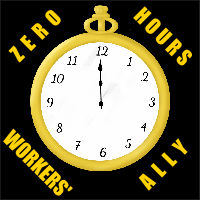
A) There are also some requests for 'word buttons' already on the website to be upgraded to picture buttons. This tends to be a fairly slow process, the number of our artists willing to have our art on the website being limited. Some of these may be the world's first picture or symbol for a given need-a-safer-space populace. There is potentially an umbrella double booking here, in that 'the shy' have been developing a mouse holding an umbrella with its tail. If we use this, we'd need to clarify there are 2 types of umbrellas: Shy on the one hand, and Sex Workers' Ally on the other.
Which is not impossible, as there are globally 2 types of Unicorn (Trans and Ace) and locally to Cambridge a third unicorn (the Poly UniCORNS) :)
B) The Ligher-hearted socs and Geeksocs crests on our website is to be replaced by versions specifying in each case that the ones we mean are Inclusive of Safer Space Minorities crest.
On the one hand, this parallels differences between unreformed and reformed drinking societies after numerous complaints over the past few years. On the other hand, this concerns LGBT-phobia, harassment etc in certain subsets of such activities. By which we solely societies that take responsibility for not containing such occurrences, either in their activities or in their organizing. This includes through their taking proper action if and when unsavoury occurrences of this general kind start to occur in their activities.
We also do not endorse any societies or services who systematically exclude Minorities or Allies from their organizing.
Nor do we endorse any societies that are run other than by one of democracy, peoples' government, in parallel to Linkline, or as some combination of these three forms of governance. While we are potentially open to adding further ethical modes of governance to this list, we will never include anger, autocracy, clique rule, mob rule or requiring candidate organizers to meet an existing group's aesthetics among such.
- Ready admission that something in contravention to the university's 'dignity at work' policy (or similar) has occurred.
- That such contraventions are unacceptable in the context of university societies (or societies primarily advertised to university members).
- That no further contraventions toward plaintiffs, witnesses or arbitrators that are, may, or may be construed to be attempts to alter the outcome of a hearing occur;
- That either a society has a written complaints procedure or a link to a 'parent such', as exemplified by the university's 'dignity at work' policy or the uni's LGBT* complaints procedure, that then is what shall be used;
- That no complaints procedure giving preferential treatment to 'core members', 'veterans', 'socialities' or organizers is valid, nor is any interpretation of a complaints procedure that involves interpreting it with such preferential treatment. By which anyone present at the activity or at its organizing has right of complaint. This including 'new', 'low-ranking' or 'outsider' participants, or whoever organizers or socialities view in such terms. This including also whatever members of the public that are present in the event of the activity or organizing occurring in a public place. Present including within earshot, for instance by being unable to sleep or work due to large amounts of noise caused by the activity. Or by violent, threatening or alarming components to that noise, such as fighting, smashing bottles, aggressive shouting or hatespeech.
- Resolution by suitably meaningful apologies, these including the people causing the problem, and the society in question, taking steps to avoid any further similar occurrences. Saying sorry and just doing it (or minor variants of it) again and again does not cut it. In the case of complaints by members of the public, examples of taking steps might include: agreeing not to hold any further similar clandestine parties in the affected party's college, or agreeing to promptly eject anyone else aggressively shouting during meetings from those meetings.
- Distinction is also to be made between complaints about events in booked rooms, sanctioned events in personal rooms, clandestine events, and events that are the opposite of booked. The opposite of booked being a clandestine meeting of a group that is already explicitly banned from the grounds in question. Colleges usually have different levels of acceptability for noise and staying after hours in booked rooms and personal rooms, unless possibly if the function rooms are in residential corridors anyway. It is to be understood that colleges usually reserve the right, in the presence of complaints, to not have the society use that location again. It is also to be understood that, if anything, a dimmer view will be taken of clandestine events, and more so by any such that involves a group already banned from the grounds. A society acting in good faith toward complaints by members of the public will not try to use subterfuge 'afforded by' clandestineness to keep on doing what has been complained about, especially not on grounds that they are banned from.